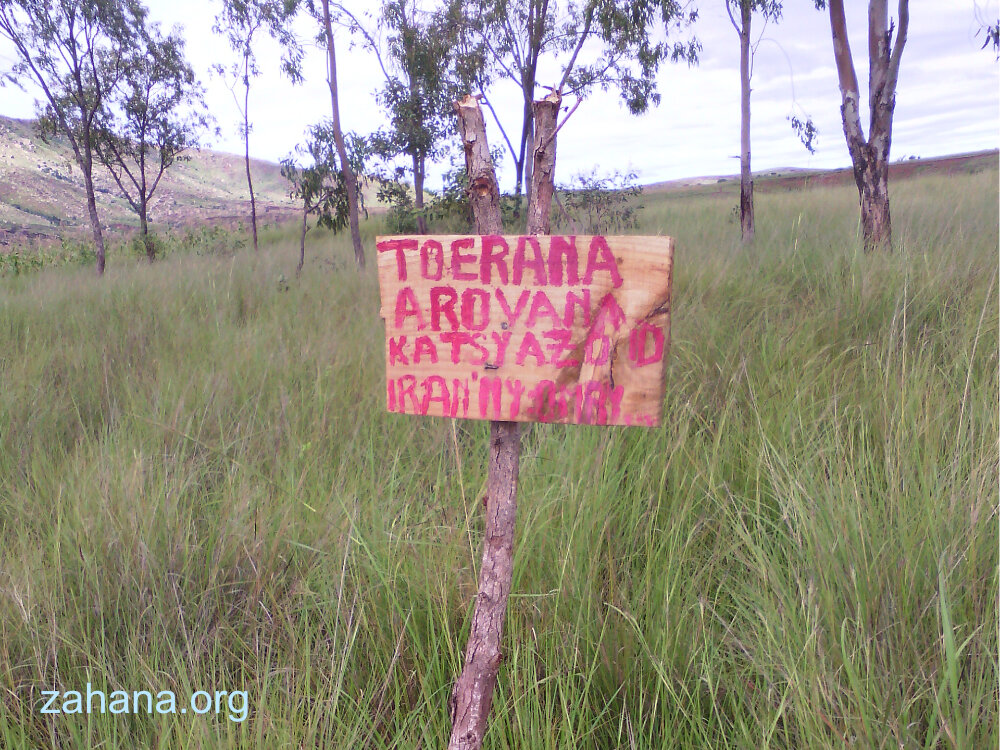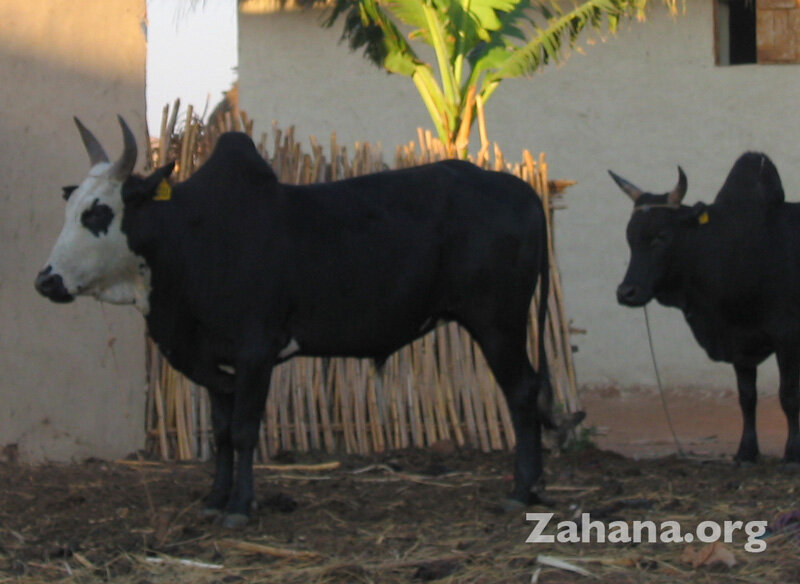By Markus Faigle | Volunteer Project Director
We got this photo from Madagascar with the tag line: “The first enemy of seed balls are zebu when it steps on the seedlings. So we put a red zone sign up to protect the area with seedballs.” (See video Reforestation with seed balls in rural Madagascar)
Context: Zebus, the cattle with the hump or humped cattle, play a vital role in Malagasy culture and are extremely valuable. Kept at night in cattle pens inside the village, in the daytime zebu are herded to pasture, wherever there is something for them to eat.
Looking at this sign, that reads in red letters: “Tolerana arovana kazy aso o iran’ny ombo” (Protected area, keep your zebus away) led us to ask a cheeky reply question via email (before the first coffee in the morning, I may add): Can zebu read in Madagascar?
The reply is a delightful insight in Malagasy culture:
“Your question is so strange for us. Zebu never go alone anywhere. There is always someone to keep close by and watch these animals at all times. This is the job most of our little boys want to do.
“This sign was their [the students 'reforesting' with seedballs] idea and we respect it. In Madagascar we have our way of living, and to become a zebu keeper is the ultimate dream job for most little village boys. It gives them a chance to go outside and play and stay away from the influences of all the other village stuff.”
Truly a Malagasy meaning for the word ‘cowboy’.
- - - - - - -
PS: Our video Combining reforestation with locally made improved cook stoves in Madagascar has seen a great boost in viewership on our YouTube channel in the last few months. Please help us to keep this exciting trend going by watching and liking it. If you feel so compelled please also leave a comment, it does make a big difference for the YouTube algorithm.
Links:
Project reports on GlobalGiving are posted directly to globalgiving.org by Project Leaders as they are completed, generally every 3-4 months. To protect the integrity of these documents, GlobalGiving does not alter them; therefore you may find some language or formatting issues.
If you donate to this project or have donated to this project, you can receive an email when this project posts a report. You can also subscribe for reports without donating.

